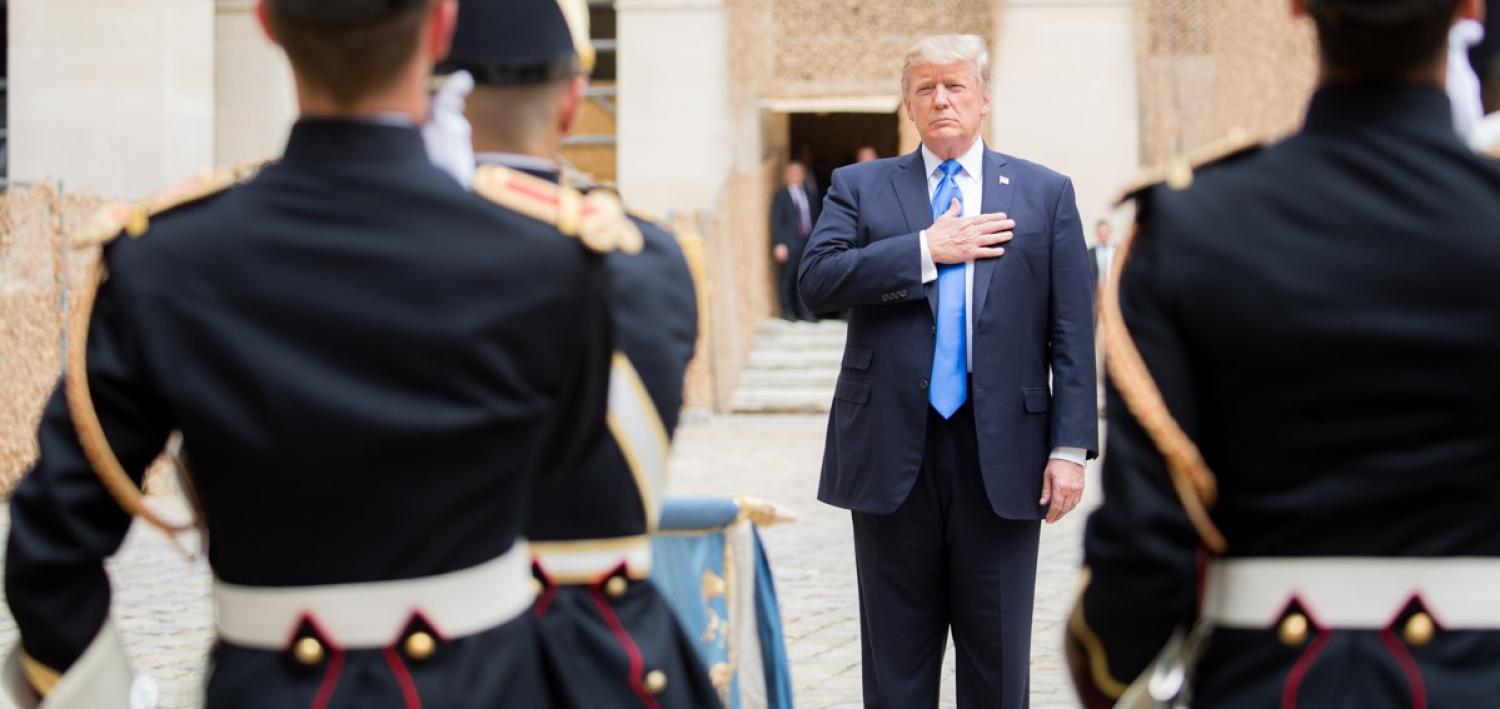Trump divides. Most people are either staunchly against or for US President Donald Trump – if not the man, then what he supposedly stands for. As most commentators find themselves in the former camp, there is no shortage of Trump critiques. Thus this piece will concentrate not so much on Trump, but on the different European reactions to a US president unlike any the world has seen before, who stands for nothing we have come to expect from the leader of the free world.
Warsaw
Both Trump's supporters and his detractors put much stock into Trump's visit to Poland (his only bilateral visit immediately before the G20 summit in Hamburg). While the White House no doubt wished to replace the never-ending Russian saga with media portrayals of a statesmanlike Trump being cheered in Warsaw, the national rightists governing Poland at this time aimed even higher. By convening a 'Three Seas Initiative' summit with eleven fellow member states from Eastern and South Eastern Europe, Warsaw likely wanted to demonstrate (to both Brussels and Washington) their weight within an EU new invigorated by Macron's election. Macron and Merkel have spoken in support of free trade, open borders in times of humanitarian emergencies and the fight against climate change – all positions oft detested by authoritarians, including Trump and Polish strongman Jarosław Kaczyński.
The eleven showed up, but for their own reasons – mainly regarding Putin. They wanted to hear from the US president that both with regard to security and energy (the Initiative had been created in 2016 in part to promote independence from energy provided by and/or transited through Russia), US assurances were still fully in place. They got that and more. They might have liked Trump's strong statements on common values, but were less likely to follow him on what the Bulgarian writer Ivan Krastev has called Trump's 'stark pessimism about the future of the West'.
As it happens, a senior Bulgarian diplomat told me that a majority of Bulgarians saw a bright future in the EU 'moving forward towards more unity'. What they alluded to was the one Brussels-related concern of all Eastern Europeans – to be reduced to minor status within a two-tier Union. With the exception of Poland and Hungary as presently governed, the rest of Eastern Europe would rather accelerate the movement towards 'more of Europe' – including respective subsidies, of course.
Hamburg
Whatever statesmanlike shine Trump might have brought from Warsaw to Hamburg faded before the G20 summit even started, outshone by European Council President Donald Tusk and Japanese Prime Minister Shinzo Abe celebrating the conclusion of a free-trade agreement between two of the world's economic heavyweights. If the Trans-Pacific Partnership survives sans US, and given that the EU now has FTAs over the Atlantic (with Canada) and the Pacific, US companies could soon feel a discriminatory effect going hand-in-hand with protectionist policies of a 'great again' US. And that is before Trump's loose talk about import taxes on steel (ostensibly for national security reasons) has morphed into anything tangible.
In Hamburg, Trump was isolated, standing alone on free trade and almost alone on climate policy. The fact that Turkey's Erdogan has announced he will possibly follow the US lead in withdrawing from the Paris Agreement should be (even for a US climate change denier) a reason for shame rather than joy.
Paris
When discovering Paris as a teenager in the 60s, I remember clearly that much of the graffiti of the time, such as 'US, get out of Vietnam', was altered to read 'US, merci pour 1917 et 1941'. All French know perfectly well who directly saved them (alongside the British and their former colonies) twice in the 20th century. Macron's invitation for Trump to attend Bastille Day, and watch its elaborate military parade, was directed primarily at the country for the 100th anniversary of its decisive involvement in World War I.
Also, if very differently, Macron is on his own mission 'to make France great again' – great within the EU as its political and security leader (alongside Germany's economic leadership), eye to eye (or rather handshake to handshake) with other greats of the world on carefully selected stages still full of historical grandeur, such as Versailles for Putin and now the Avenue des Champs- Élysées for Trump. But also great again for the benefit of his countrymen, who continue to respond by and large in a positive manner to a new President who, contrary to his two predecessors, is unlikely to either embarrass them nor France in the eyes of the world.

